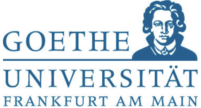Exploring the New Old Frankfurt
Call for Papers – CAA2019
For the Session „Recent Developments in Digital Numismatics – Breaking down barriers“ at CAA2019 in Krakow. The call for papers …
Professor Zicari speaks at a panel discussion on AI & Ethics
Professor Zicari was invited to a panel discussion ( “Panel 2 – AI & Ethics”) at a conference organised by the Canadian German Chamber …
Visiting Scholar: Matteo Pergolesi
We would like to say thank you and goodbye to Matteo, who will complete his visiting scholarship at the Frankfurt Big Data …
Data Challenges 2018: Successful Kick off Meeting on April 19
On April 19 we had a very successful start for the Data Challenges 2018. This year, the Data Challenges 2018 …
Successfully completed two-days workshop of the LeMO H2020 project.
We have successfully completed the first two-days workshop „Setting the Stage on #BigData in #Transportation“ of the LeMO H2020 …
Matteo Pergolesi is Visitor Scholar at our Lab.
We would like to welcome Matteo Pergolesi, who is visiting our Lab till end of March 2018. Matteo Pergolesi received his master …
Professor Zicari spoke at the SIUFrankfurt event: „The Human Side of AI”
Professor Roberto V. Zicari spoke on 20.11.2017 at the SIUFrankfurt event: „The Human Side of AI” Download the presentation slides …
Frankfurt Big Data Lab and Campus Fryslân launch partnership
Frankfurt Big Data Lab and Campus Fryslân launch research and education partnership 14 September 2017 Frankfurt/Leeuwarden- September 13, 2017. …
